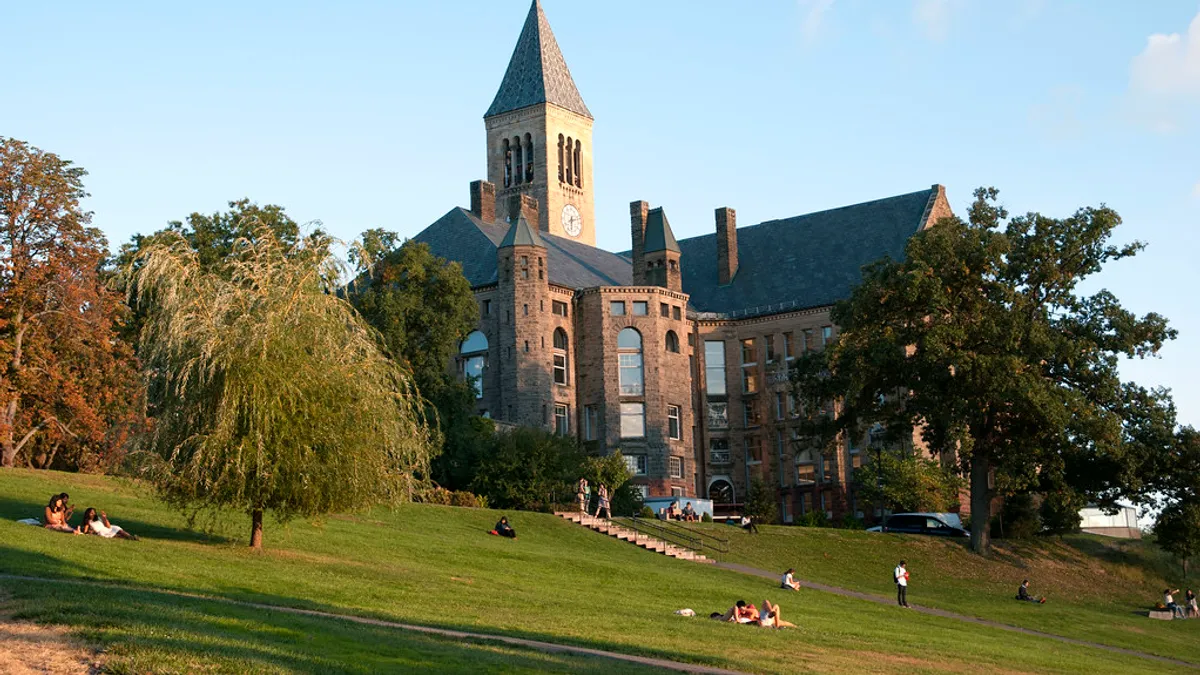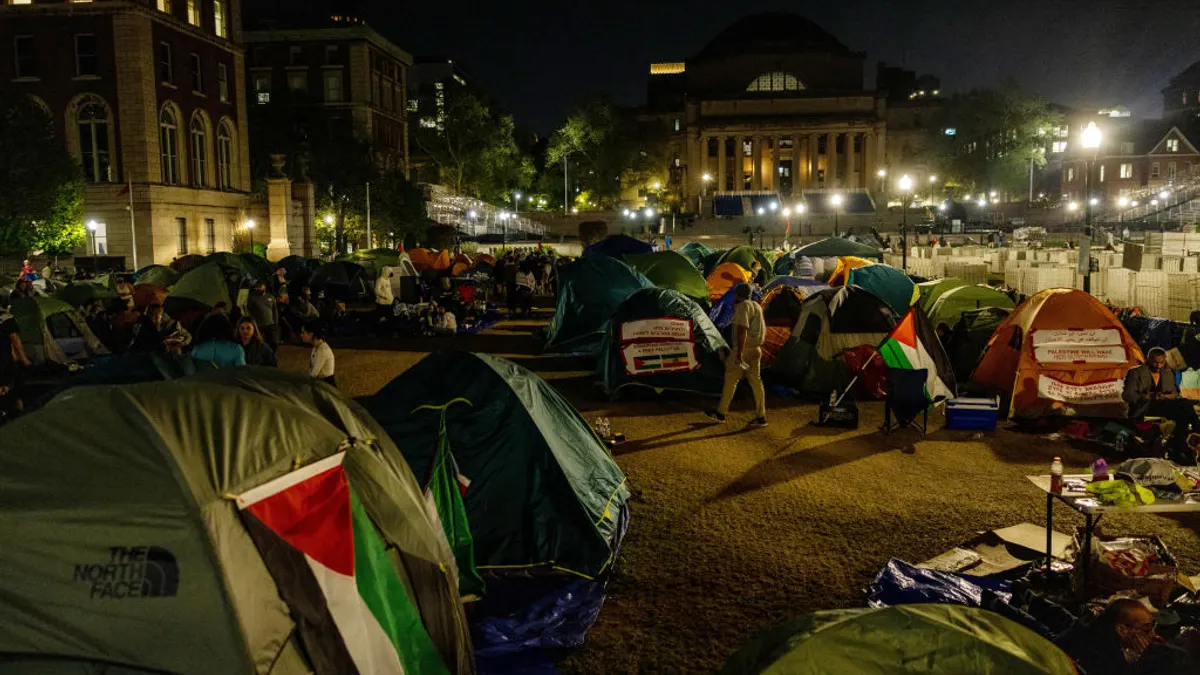Cornell University plans to stop serving Starbucks coffee at its dining facilities at the end of June 2025, which is when its contract with Starbucks and Nestle’s “Proud to Serve Starbucks Partnership” expires, Cornell Vice President for University Relations Joel Malina confirmed in an email Thursday.
Cornell appears to be the first university to cancel its contract with Starbucks as a result of the company’s response to the Starbucks Workers United campaign, according to Starbucks Workers United.
Students at the university began pushing the administration to cancel its contract with Starbucks in May, when Starbucks announced it would close its last two corporate stores in Ithaca, New York, both of which were union stores, said Danielle Donovan, a student involved in a campaign to get the college to end its deal with Starbucks.
Similar campaigns are underway at the University of Washington and in the University of California system to pressure those schools to stop serving Starbucks, a Starbucks Workers United spokesperson said.
Patrick Kuehl, the president of Cornell’s student assembly, said Cornell decided to part ways with Starbucks “after the National Labor Relations Board released a scathing opinion that Starbucks broke multiple labor laws in Ithaca NY.” In May, Cornell President Martha Pollack said she appreciates “the SA’s concerns and perspective regarding Cornell’s relationship with Starbucks” and that the university “supports fair labor practices in compliance with federal and New York State law.”
In 2022, all three Starbucks stores in Ithaca voted to unionize. Starbucks shut down all three stores, one in June 2022 and two in May 2023. An NLRB administrative law judge found in July that the closure of the first Ithaca store was illegal, though Starbucks said it would appeal the decision and said the closure was not a response to union activity.
The May closures prodded students to action, Donovan said, as Cornell students wished to express solidarity with workers. Many of the Starbucks workers at the locations impacted by the closures were Cornell students, Donovan said.
The decision was announced in the middle of Cornell’s move-in period. Donovan said Cornell likely intended to avoid the sorts of protests staged on campus in May, when students occupied an administrative building. Cornell did not immediately respond to a request for comment on the timing of its decision.
"We decided that if [Starbucks is] going to fire our friends and close the door, why should [Starbucks] continue to profit on our campus?” Donovan said. “I'm very happy with the outcome. Initially, we called for, like, an immediate end to the contract. But really, this is the best outcome we could have hoped for.”
The university and the student assembly will work together to find a company to replace Starbucks, Kuehl said. Malina confirmed this via email.
“We have worked closely with administration and will continue to do so,” Kuehl wrote in an email “Organizations in any capacity that violate the rights of individuals to express democratic principles in their workplace have no place at our campus.”
Malina declined to share the value of the contract. According to a copy of Starbucks’ 2014-2024 contract with the University of Washington system inspected by Restaurant Dive, the University of Washington agreed to pay a $30,000 license fee per Starbucks branded store developed under the contract, alongside a 7% monthly royalty rate, 1% monthly advertising fee, 1% quarterly local marketing fee and a requirement that the university system purchase all supplies from Starbucks or an approved vendor. Starbucks did not comment on the structure of its contract with Cornell.
Starbucks’ global coffee partnership with Nestle is part of the channel development section on its 10-Q. While the revenue from that specific partnership is not shared, the channel development section of Starbucks’ business generated $448 million in revenue in Q3.
As the SBWU campaign nears its second public anniversary, the union and its allies have sought to turn up the pressure on the company through strikes, consumer actions like flyering and shareholder proposals.


















